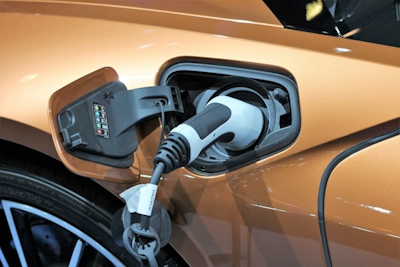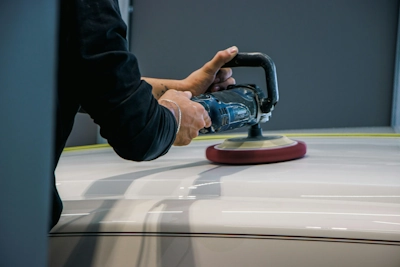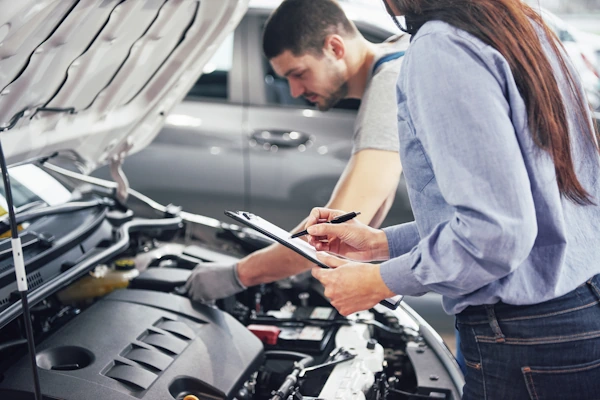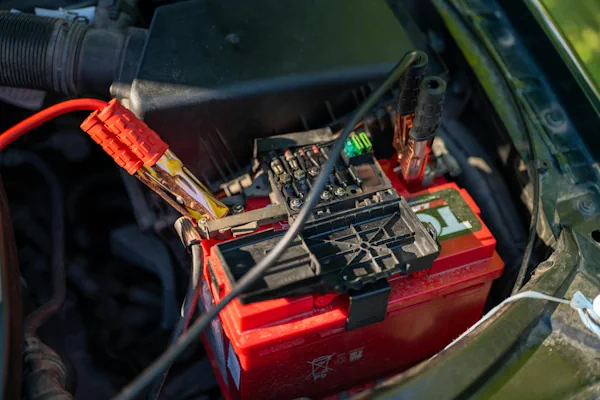Tyres cop a lot of punishment on Aussie roads: potholes, loose gravel, curbs, heat, and everyday wear. Eventually, something goes wrong, and you're left wondering: "Can I get this repaired, or do I need a full tyre replacement?"
It's not always black and white. Some issues can be safely patched up, while others mean it's time for new rubber. Knowing the difference is a key part of good tyre care. This guide walks you through common signs that help you make the call to repair or replace with confidence.
You're Losing Air, But the Tyre Looks Fine
Sometimes, you'll notice your tyre pressure keeps dropping, even though there's no sign of a nail or anything stuck in the rubber. You top it up at the servo, thinking it's sorted, but within a few days, the air's down again.
In most cases, it's a small puncture from something like a screw or nail that's worked its way into the tread but hasn't caused a big enough hole to notice right away. It could also be a slow leak from a worn-out valve or some corrosion around the rim, which is more common on older wheels.
Repair or Replace?Usually repairable.
If the puncture is small (under 6mm) and located in the tread area, it can usually be safely repaired. We can sort that out if it's a leaky valve or rim issue. Just don't ignore it. Driving with low pressure wears tyres faster and affects braking.
You've Driven on a Flat Tyre
We've all been there. You're halfway through a drive and realise your tyre is flat. Whether from not noticing a slow leak or pushing your luck to the next petrol station, driving on a flat can cause severe internal damage. Even short distances at low speeds can be enough to compromise the tyre's structure, especially the sidewalls.
Repair or Replace?Replacement required.
A tyre replacement is the safest option. The internal components of the tyre, like the belts and casing, can be damaged in ways you can't see, which can lead to a blowout later on.

The Tyre Has Multiple Punctures or Repairs
If you've already repaired a tyre once (or maybe even twice), and it cops another nail or sharp object, you might be tempted to patch it again. While individual repairs are safe if done correctly, too many can weaken the tyre's integrity. Plus, repairs that are too close together or overlapping aren't reliable in the long term.
Repair or Replace?Replacement recommended.
In most cases, if a tyre has had two or more repairs, it's best to replace it. Safety comes first, and you don't want to rely on a patched-up tyre full of plugs, especially in wet or high-speed conditions.
Your Vehicle Vibrates or Pulls to One Side
Feeling a vibration in the steering wheel or the whole car pulling left or right? This doesn't always mean it's the tyres, but they're a good place to start. These symptoms can be caused by an out-of-shape tyre, uneven tread wear, or a belt separation inside the tyre. All of these can affect balance and alignment and, in some cases, can be quite dangerous.
Repair or Replace?It depends, so we recommend getting an inspection.
If it's due to uneven wear or a minor out-of-balance issue, you might be able to rotate or rebalance the tyres. But if the tyre is out of shape or has internal damage, replacement is the only safe move. Bring it into Tyrepower and we'll check the structure.
Your TPMS Light Keeps Comming On
If your car has a Tyre Pressure Monitoring System (TPMS) and that little warning light keeps flicking on, it's not something to ignore. This could indicate an ongoing slow leak or pressure loss from temperature changes. But if the light keeps returning after resets, there may be a deeper issue with the tyre or the sensor itself.
Repair or Replace?It's likely repairable, but get it checked.
If it's a simple leak or a faulty sensor, you're probably looking at a quick fix. However, if a leak's been left too long or the tyre has become unsafe from running underinflated, replacement might be the better call. It's best to catch it early.
Let Tyrepower Inspect and Fix It the Right Way
You don't need to guess whether your tyre needs repairing or replacing. That's what we're here for. At Tyrepower, our expert team can inspect the damage, assess the tyre's condition, and give you honest advice. Drop by your local Tyrepower or give us a call at 13 21 91 to book a tyre check. Find your nearest Tyrepower store offering these services

























